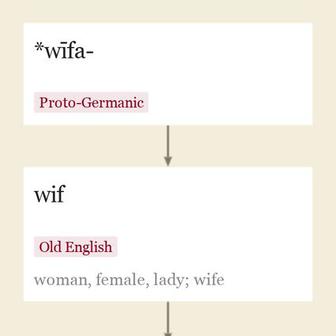alewife n.
herring-like fish of North America, 1630s, named from the word for female tavern-keepers (attested from late 14c.), from ale + wife; the fish so called in reference to its large abdomen.
Entries linking to alewife
"
In the fifteenth century, and until the seventeenth, ale stood for the unhopped fermented malt liquor which had long been the native drink of these islands. Beer was the hopped malt liquor introduced from the Low Countries in the fifteenth century and popular first of all in the towns. By the eighteenth century, however, all malt liquor was hopped and there had been a silent mutation in the meaning of the two terms. For a time the terms became synonymous, in fact, but local habits of nomenclature still continued to perpetuate what had been a real difference: 'beer' was the malt liquor which tended to be found in towns, 'ale' was the term in general use in the country districts. [Peter Mathias, "The Brewing Industry in England," Cambridge University Press, 1959]
Meaning "

Middle English wif, wyf, from Old English wif (neuter) "
Apparently felt as inadequate in its basic sense, leading to the more distinctive formation wifman (source of woman). Dutch wijf now means, in slang, "
The more usual Indo-European word is represented in English by queen/quean. Words for "
The modern sense of "
updated on September 16, 2022